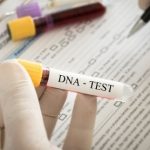Success Rates for DNA Extraction from Non-Standard Samples
In my previous post, we looked at some of the more common types non-standard samples used to obtain DNA from an individual for DNA testing purposes. In this article we will look at DNA how successful a laboratory can be extracting DNA profiles from the various types of samples and how these can vary from one sample to another.
It is possible to fail to obtain sufficient DNA from a buccal swab, for reasons such as: the swabbing was not adequately performed, the swabs grow mold due to damp storage conditions, bacteria destroys a damp sample or a person just does not give off much DNA during the swabbing process. These cases are rare and problems with this type of sample are normally less than 2%.
Non standard samples, however, can present a greater problem when exacting DNA to create a profile. Laboratories cannot guarantee that a DNA profile will be obtained from any sample submitted. Depending on the nature of the sample, there are differing probabilities of success in extracting DNA from each type of sample (in some cases a percentage probability of success is provided). For the purpose of this article we have broken the samples in to three categories, High, Medium and Low.
High (80% average can be higher or lower) : Samples such as finger nail or toe nail clippings, fresh blood stains or hairs with root and follicle where, for a qualified and experienced DNA laboratory, extracting DNA is considered relatively straightforward. In such cases, as long as the sample is handled properly both during collection and delivery to the laboratory, one can expect a high probability of success in extracting DNA.
Medium (50%-60% average can be higher or lower) : Samples such as a toothbrush or cigarette butts – the success rate is influenced by a number of variables including heavy use vs light use and/or storage conditions etc. Therefore a heavily smoked cigarette butt found in an ashtray at home is more likely to result in a successful DNA extraction than a lightly smoked cigarette that has been thrown on the street and exposed to the elements, such as terrain, wind and moisture or rain.
Low (20% – 30% average can be higher or lower) Samples such as teeth or bone, where extracting DNA is a relatively difficult and time consuming process, these normally need to be handled by a highly specialized laboratory, such as ours. In these cases, the individual should consult the laboratory first to check their level of expertise, if they will accept the sample and the cost.
The classification above is however only a guideline, since as we have seen it is not just the type of sample that is important but also other variables can have an influence such as :
1. Poor storage conditions (e.g. damp environment, extreme heat, etc.).
2. Poor sample handling (possible contamination with other DNA or dirt by touching the sample).
3. Not enough DNA present (e.g. heavily used toothbrush vs used once only).
4. Age of the sample. DNA will degrade over time.
It is also important to note that the success rate will also depend heavily on the ability of the laboratory performing the test. Not all laboratories that can perform DNA Paternity testing on normal swabs are capable of obtaining DNA from a wide variety of non-standard sample. The more difficult the sample (e.g. teeth and bone), the greater the specialization and experience required to increase the chance of a successful DNA extraction. It is important to make sure that that lab that is performing the work is accredited to do so.
Finally, it is also important to note that with non-standard samples there is always a risk that the extraction will not work. Therefore any person considering submitting such a sample, especially where it may be only a limited sample available (e.g. person is dead), should take this into consideration. Selection of an experienced laboratory (possibly of forensic specialization) will help minimize this risk by educating you on the best sample to submit so that you do not waste both time and money.
For more information, please call our company directly.




